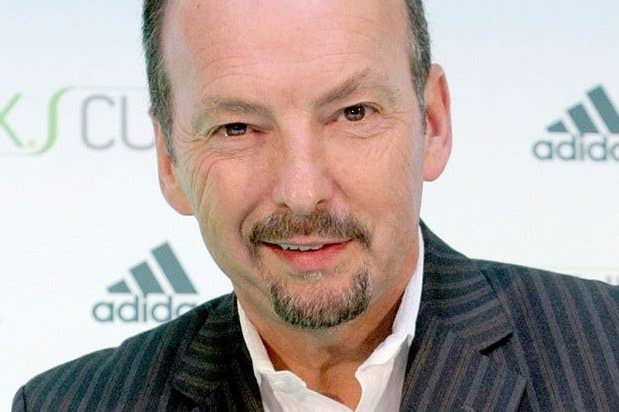Moore: "We want to make stars of all our players"
EA's Chief Competition Officer lays out company plans for eSports
Peter Moore, newly crowned Chief Competition Officer at EA, has spoken about his hopes for the future of eSports and EA's involvement in it at Gamelab in Barcelona this morning, talking about the importance of diversity, regulation and the need to extend the medium beyond the glamorous top level events which players aspire to.
Echoing some of the thoughts expressed in a recent interview with GamesIndustry.biz from E3, Moore spoke at length about his desire to "make stars out of all our players," rather than just the big prize winners at the top of the pyramid. Whilst those players offer inspiration for the grassroots community, every game should ideally make you feel like you're playing in a championship, pushing the limits of your ability. Key to that is solid matchmaking, something Moore says EA is devoting considerable resources to.
"We've all gone online and had our asses kicked by obnoxious 12 year olds," said Moore. "Matchmaking is the base of the pyramid. That's the essence of enjoyment - appropriate competition."
"The beauty of what we're in here in competitive gaming, is that 'yes you can'. You absolutely can, if you've got the dedication, if you've got the motivation, the basic skill levels"
In fact, Moore called the top tier competitions which see young players showered in money and glory a "necessary evil" and a "loss leader", whilst simultaneously recognising their importance as a way to inspire the average player. Whilst these events may represent the World Cups and Superbowls of the eSports world, Moore's passion seems firmly rooted in the Sunday league matches and park-based kickabouts which are the day to day experiences of most gamers.
Continuing that theme of democratisation, Moore went on to say that success in eSports is a possibility for almost anybody willing to put the (considerable) work in.
"I grew up in Liverpool. I wanted to play for Liverpool, but I was never going to play for Liverool. It didn't matter how much I practiced, I just didn't have it. The beauty of what we're in here in competitive gaming, is that 'yes you can'. You absolutely can, if you've got the dedication, if you've got the motivation, the basic skill levels. It doesn't require the physicality, the genetic luck that real athletes often have on their side. It's very different, and it's very opportunistic. This is a massive opportunity."
Later, Moore adressed two contentious issues regarding the rapid growth of eSports: diversity and regulation. Speaking about representation, Moore was keen to point out EA's track record on encouraging the broadest possible swathe of players, whilst recognising that there's still work to be done.
"Diversity is at the core of what we believe at EA. If you follow us at all you'll know how important diversity is to us. Not just gender but sexuality, colour, race, you name it."
"I think it's a big issue," he said in response to an audience question. "Diversity is at the core of what we believe at EA. If you follow us at all you'll know how important diversity is to us. Not just gender but sexuality, colour, race, you name it. I think we all understand the challenges there. The equation online, that everyone understands, tends to be: audience + anonymity equals douchebag. That is the world we live in, unfortunately. As publishers, developers, administrators we need to ensure that people don't knock women, people of colour. Whether that's via Twitter, harrassment in their headphones. Our goal is to make games for everyone. It's a very simple edict. We're somewhere around 25-28% female customers. So an environment were you can administrate againt harassment is key."
Moore also took the time to praise the senior female executives at EA, people like Amy Hennig and Jade Raymond, who were providing positive role models to bring more women into the industry.
Asked about regulation of eSports, and where he sees EA's roles within that, Moore pledged EA's support to ongoing protection of player welfare and the establishment of rules of fair play.
"When you look at eSports today, you see teenge biys being showered with thousands of dollars in prizes. What can possibly go wrong there," he joked. "In all seriousness, I've tried to ink this to real sports. How can we see how close we are to real sports? Because we've got match fixing, we've got drug taking involved: ritalin, adderal. When you have money, aspiration and audience, people are going to try and cut corners. That's every sport.
"So I think that, as an industry, we completely need to figure out a governing body that's going to help police, patrol and administrate. We've already built out a set of terms and conditions. If you want to compete, you need to adhere to them. We have vaues as a company. We need to be able to protect the people playing. Like any sport, it will evolve, but it's going to be a problem for a while. It's going to be a bumpy ride. EA is going to be front and centre."

